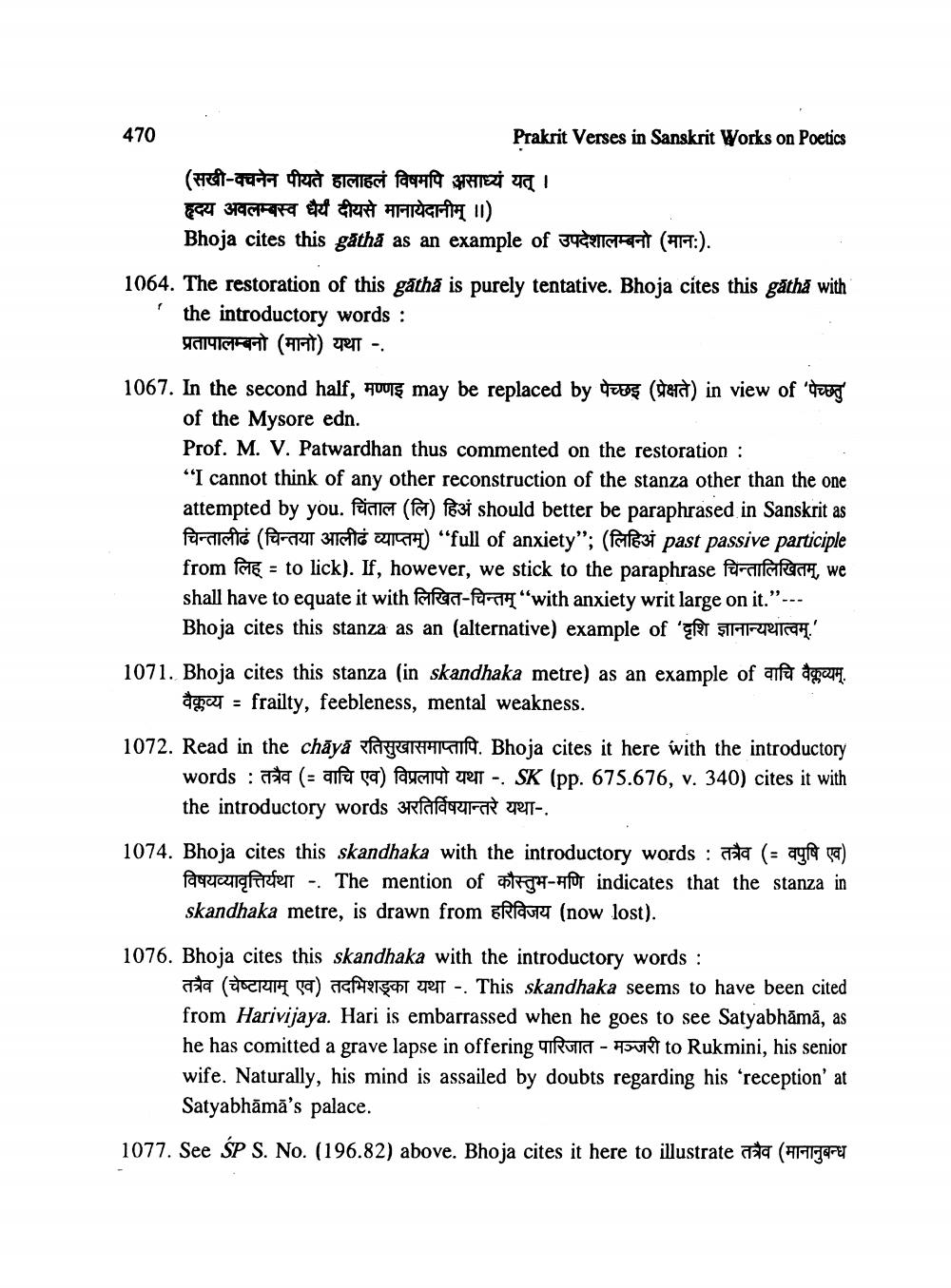________________
470
Prakrit Verses in Sanskrit Works on Poetics (सखी-क्वनेन पीयते हालाहलं विषमपि असाध्यं यत् । हृदय अवलम्बस्व धैर्य दीयसे मानायेदानीम् ॥)
Bhoja cites this gatha as an example of उपदेशालम्बनो (मान:). 1064. The restoration of this gātha is purely tentative. Bhoja cites this gātha with
the introductory words : 941416R (ANT) TRT
be !
1067. In the second half, मण्णइ may be replaced by पेच्छइ (प्रेक्षते) in view of 'पेच्छतु
of the Mysore edn. Prof. M. V. Patwardhan thus commented on the restoration : “I cannot think of any other reconstruction of the stanza other than the one attempted by you. facic (fa) foi should better be paraphrased in Sanskrit as चिन्तालीढं (चिन्तया आलीढं व्याप्तम्) "full of anxiety"; (लिहिअं past passive participle from PoE = to lick). If, however, we stick to the paraphrase farafeteria, we shall have to equate it with लिखित-चिन्तम् “with anxiety writ large on it."... Bhoja cites this stanza as an (alternative) example of 'EfoT recan
1071. Bhoja cites this stanza (in skandhaka metre) as an example of aifa dgan.
agar = frailty, feebleness, mental weakness.
1072. Read in the chāyā fargerTHITA. Bhoja cites it here with the introductory
words : da (= aifo a) fauciet UT - SK (pp. 675.676, v. 340) cites it with the introductory words 3rfaldurma URIT-.
1074. Bhoja cites this skandhaka with the introductory words : a (= agro 59)
विषयव्यावृत्तिर्यथा - The mention of कौस्तुभ-मणि indicates that the stanza in skandhaka metre, is drawn from sRauty (now lost).
1076. Bhoja cites this skandhaka with the introductory words :
data (HCRTH 5) feGoat UPIT - This skandhaka seems to have been cited from Harivijaya. Hari is embarrassed when he goes to see Satyabhāmā, as he has comitted agrave lapse in offering पारिजात - मञ्जरी to Rukmini, his senior wife. Naturally, his mind is assailed by doubts regarding his 'reception' at
Satyabhāmā's palace. 1077. See ŚP S. No. (196.82) above. Bhoja cites it here to illustrate ata (HHICOFU




